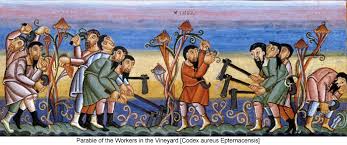
On a cold and rainy night, Lt. Commander Robert Risdon was driving home after a long day. He realized he was hungry and stopped at a Taco Bell, ordered a meal and sat down to ate. Then he noticed something. Two boys, about 9 and 12 years old, looking cold and wet, were going around to customers and being waved away. They came to Risdon and asked if he wanted to buy some candy to benefit their school. Risdon didn’t have any cash on hand but looking at the boys he stopped them and asked if they were hungry. They nodded yes. Do you think you can knock of a taco ten-pack? He asked? The boys eagerly said yes. Risdon took them to the counter and let them order whatever they wanted and he charged their meals. Unknown to Risdon, this exchange was being recorded and later placed on Facebook as an example of great kindness. Risdon oblivious to what was happening, sat with the boys. The boys tried to salute him and Risdon engaged them in the correct way to salute. The younger boy said, “I want to be just like you some day.” A simple yet profound act of generosity that went viral because someone recognized a need that needed tending. In these times of pain and conflict, it is good to be reminded that kindness and the grace of generosity can create ripple effects among us.
Last week we explored two significant pillars of a healthy faith. We talked about forgiveness, and we talked about not being judgmental or critical with each other as habits to build healthy spiritual lives, and build a strong church community. Today’s lessons provide another necessary pillar to strengthen our walk with Christ and become a vibrant church. We’re going to talk about the grace of generosity. These are principals that will get us through this trying time of COVID and lead us to heal the divisions in our country and world.
To understand our lesson from Matthew 20 about the generous landowner, we need to back up to the conclusion of Matthew 19. There, a rich man who has kept the law flawlessly asks Jesus, “what good deed must I do to have eternal life?” Jesus who looks at him with compassion, says “you lack one thing. Go sell what you have and give to the poor and follow me.” The rich man walks away grieving, because he is too attached to his possessions. Jesus remarks that “it is easier for a camel to go through the eye of a needle than for someone who is rich to enter the kingdom of God.” Jesus concludes, “the first shall be last and the last shall be first.” So, we see that what we do with our resources makes a difference. And we see this principle at play in the next parable Jesus tells.
Today. Jesus tells a parable that the kingdom of heaven is like a wealthy landowner goes to the town square at 6am, the start of the workday in the ancient world, to hire workers for his vineyard. He agrees with them the standard daily wage, a denarii. A denarii was enough to pay for the day’s expenses, enough to feed your family for the day and no more. Then the landowner does something unusual. He goes out again at 9am, at noon, at 3pm and the at 5pm and hires whoever is without work and standing idly around.
So, at the end of the day, he calls the last first. In sight of everyone the landowner pays those who worked an hour the entire day’s wage of a denarii. We can imagine the reaction of those who started at 6am, and 9am, and the rest. They’re rubbing their hands in anticipation of a hefty wage in contrast to the workers who were only there an hour. Maybe 3 denarii or perhaps even 5 or 8 or even 12 denarii. The excess is already being spent in their minds -- perhaps clear up the tab at the pub, buy a new suit pay the school fees or bring home treats for the kids.
So, imagine their outrage when the landowner gives them one denarii as well. Yes, that is what they agreed to. But they worked 12 hours, 9 hours, 6 hours- how is that fair next to someone who only worked 1 hour? And so, they protest. But the Landowner isn’t hearing it. Take your money and go, he says. Or are you envious that I am generous?
That is the key to the parable. Jesus has no quarrel with the wealthy landowner or wealth in general. It’s what the landowner does with his abundant resources that make a difference. The landowner knows the workers need at least a denarii as a day’s wage to care for his family. He puts in the time, he goes to the village square five times throughout the course of the day to pursue those in need of employment. He gives them all a fair, living wage irrespective of when they started. All will get enough to care for their family whether they worked an hour, or 12 hours. Unlike the rich man stuck with rules but couldn’t share wealth to the poor, this wealthy landowner sees as his duty to find as many workers as possible and treat them fairly. This text invites us to engage in a conversation about generosity as a foundational spiritual practice God calls us to.
This is how God acts with us. We are all given saving grace, irregardless of when we answer the call: whether in our childhood or on our death beds.
Compare this to our Hebrew passage from Exodus. The people of Israel are now a displaced people. God has led them out into the wilderness, a barren land that is unable to sustain them. Their lives are turned upside down. Everything around them is unfamiliar and looks dangerous. So, they begin to have second doubts. Their minds are hardened. Even slavery in Egypt looks better than this endless wandering with no guarantee of food. They cry out “would God have killed them in Egypt, where they had bread” instead of leading them out in nowhere land to die of hunger. The text mentions that they complain at least eight times.
God could have found some way to shut them up. Or sent them back. After leading them out of a 400-year history of slavery God, instead of giving in on this difficult people, God addresses their needs. God sends bread from heaven, manna, to the Israelites in the morning. In the evening God sends quail for the Israelites to eat. God does this every day for the forty years that the Israelites sojourn. He sends just enough for one day, in order that the people can learn to trust, not the slave-master, but God. In this enormous time of transition, God’s grace is sufficient., God gives generously.
Giving generously is the action of a God-filled heart, led by the Spirit, inspired by Jesus. We give despite the grumblings of the vineyard workers; we give generously despite the constant complaints of the people of Israel in transition. We live in a wilderness time where our church, our nation, our world, our ecosystems, are in the center of profound change. We live in an anxious, frightening time. Will we get hit by a hurricane or earthquake? Will COVID surge again? Will those businesses that have shut down, losing jobs, ever reopen? Will we have the resources to retire? To get our children through college? To pay the mortgage or rent? Will another peaceful protest turn violent? Will we encounter a terrorist on the train yielding a gun? We are surrounded by so many whatifs. We have turned our vision of a “Promised Land” into a wilderness for the majority of the people. No wonder there are so many complaints. Generosity has been flipped to greed. Yet we must cling to Paul’s encouragement when he writes in Galatians 6:9 “We must not grow weary in doing good.”
The root of generous from the Latin means “to come from noble birth.” As children of God we indeed come from a noble birth of our sovereign God. The Grace of Generosity is in our DNA.
The Grace of Generosity is an attitude that takes the copious view, the abundant approach. It doesn’t seek the minimal level in giving. It strives for the maximum and then some. Since we have a generous God, we are beckoned to be a generous people of God. We are called to model and promote generosity as a value in our world. Imagine if the grace of generosity drove the world instead of greed. We would come to church not just when it fits in our schedule easily, and not only for our own spiritual edification, but to lift the spirits of others. We make a habit to bring food, to respond to the needs of the vulnerable of our community. We stretch and train the muscles of giving to make it a daily habit. We give generously, because God, life gives the grace of generously to us. So let us be a noble people, live to give generously, while you forgive, while you withhold judgment, give that taco ten-pack, give that stuffed animal give the love that will make the difference and be a channel a grace and rekindle hope. amen.
http://day1.org/6106-a_wilderness_people_in_the_promised_land
https://abcnews.go.com/Lifestyle/video-soldier-buying-meals-hungry-kids-viral/story?id=36579816

 RSS Feed
RSS Feed